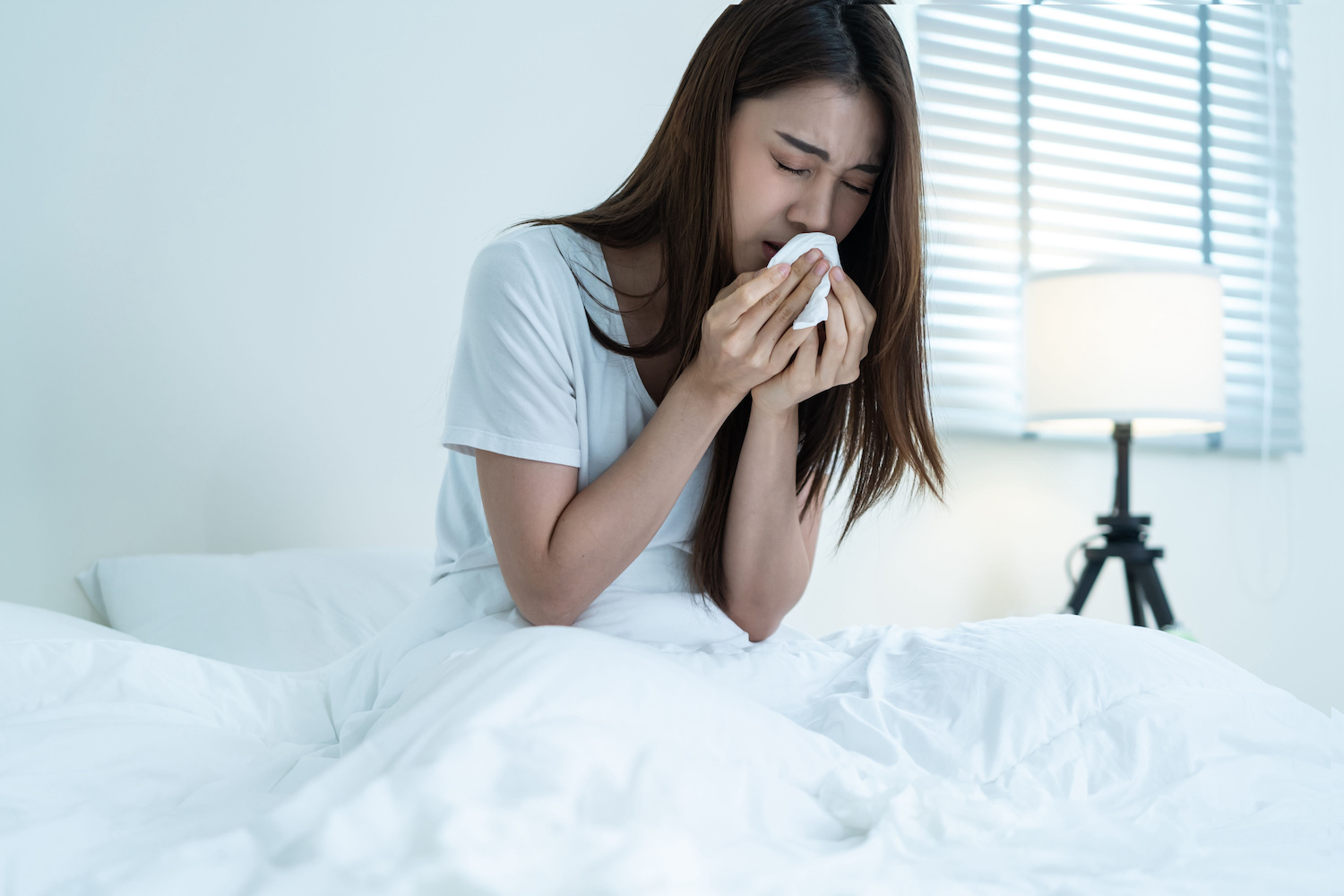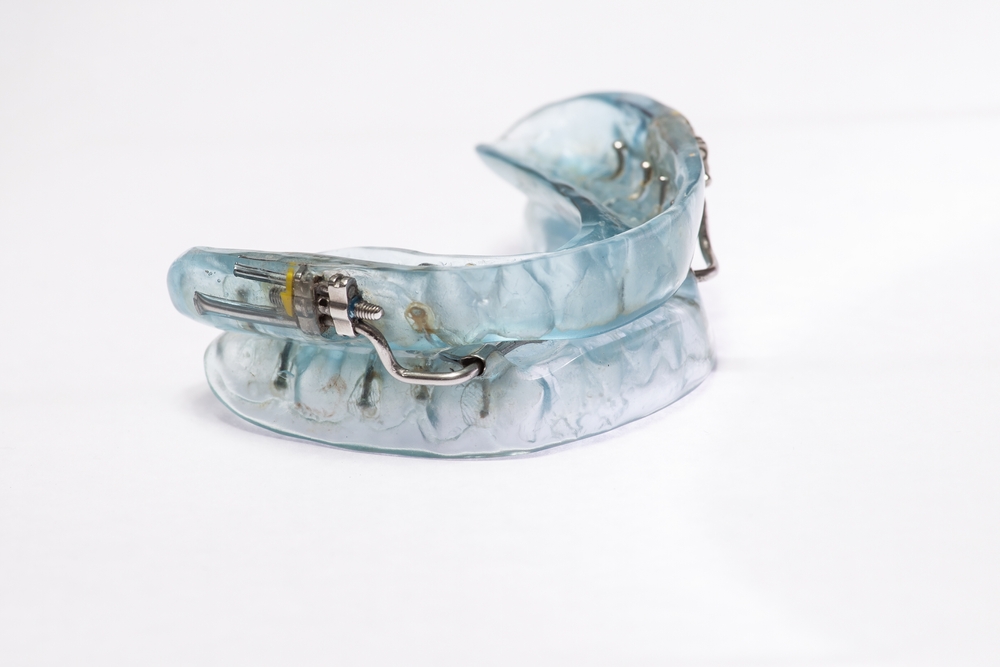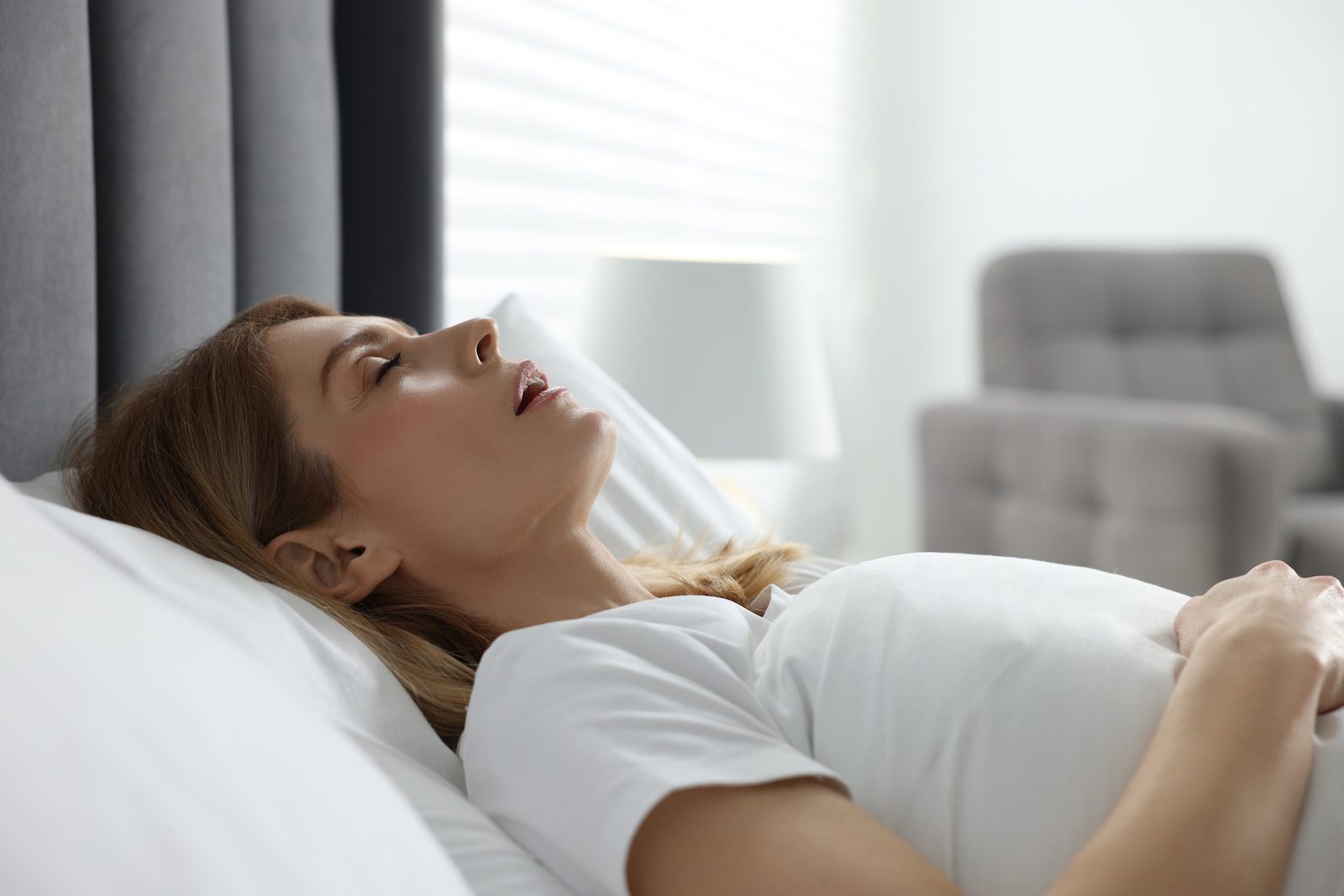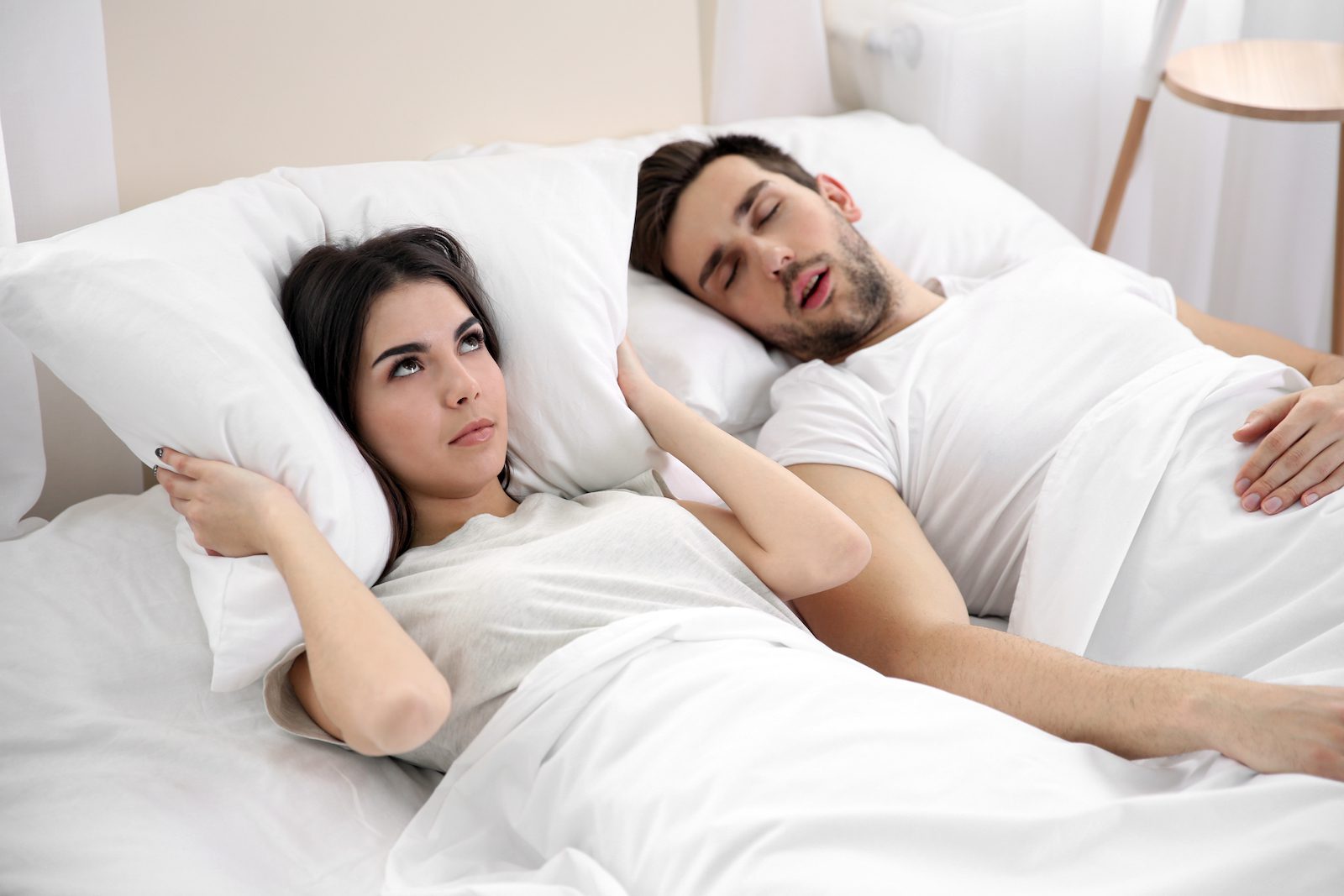While small studies suggest that mouth taping may help stop snoring, there is not enough evidence to know the effectiveness of mouth taping.
Mouth taping is designed to stop snoring by preventing mouth breathing. The position of your lower jaw when sleeping affects the position of your tongue, airway patency and vibration of tissue can cause snoring. Side effects can occur from mouth taping, and highly adhesive tape should never be used. Experts recommend talking to a doctor before trying mouth taping.
What Is Mouth Taping?
Mouth taping is a way of trying to keep the mouth closed during sleep. Although research about mouth taping is limited, it is intended to limit mouth breathing and reduce snoring.
Does Mouth Taping Stop Snoring?
Some small studies suggest that mouth taping may help reduce snoring. These studies used a porous tape or patch to hold the mouth closed. Mouth breathing during sleep may exacerbate snoring, and mouth taping may encourage nasal breathing instead.
The research about mouth taping and snoring has focused on people with mild obstructive sleep apnea (OSA), a sleep-related breathing disorder with loud snoring as a common symptom. While studies suggest a possible benefit, more evidence is needed to know if mouth taping can consistently stop snoring for most people.
Mouth taping may also make treatment more effective for people who have OSA and use a nasal CPAP machine while they sleep because mouth breathing can affect acceptance of CPAP usage.
No studies have shown that mouth taping can prevent or resolve other health problems. Although mouth breathing has been associated with several health issues, including dental problems, changes to lung function, and alterations of oxygen levels in the brain that may affect thinking, more research is needed about whether mouth taping at night would have any effect on those issues.
Is Mouth Taping Safe?
Not enough studies have been completed to know whether mouth taping is safe. There is a risk of side effects, so always talk with a doctor before trying mouth taping.
In one study using porous tape, the most common side effects of mouth taping included:
- Discomfort
- Lip soreness
- Difficulty breathing
- Perception of suffocation
- Sleep disruption
- Embarrassment
Harsh tape that is not appropriate for skin may worsen side effects, including irritation and pain, particularly when removing the tape. Although uncommon, allergic reactions to tape are possible.
Sometimes people breathe through their mouth because nasal passages are blocked. In these cases, talking with a doctor can make sure that mouth taping doesn’t restrict breathing. Similarly, people with OSA should not try mouth taping in place of another treatment unless they have consulted with their doctor.
How to Use Mouth Tape for Snoring
When mouth taping for snoring, it is important to select appropriate tape. Mouth tape should be porous, adhere lightly to the skin, and be easy to remove. Strong tape or industrial tape, including duct tape, should never be used.
Unfortunately, not enough research has been conducted to create recommendations about the best way to use mouth tape. In one study, a thin strip of silicon tape was used to connect the top and bottom lips near the center of the mouth.
Trying out different methods of mouth taping while awake may identify what’s most comfortable and effective. A doctor may also offer practical tips for mouth taping.
Alternatives to Mouth Tape
Many approaches besides mouth taping can be effective in decreasing snoring.
- Avoid back sleeping: Sleeping on your back is most likely to induce snoring, so it can help to only sleep on your side or stomach. Various products are designed to help maintain a preferred sleep posture.
- Apply nasal strips: Strips can be placed over the bridge of your nose to facilitate nasal breathing during sleep.
- Use a decongestant: If you are breathing through your mouth because of allergies or a stuffed-up nose, ask your doctor about medication to reduce congestion.
- Don’t smoke: Smoking cigarettes is associated with snoring, so quitting smoking may decrease snoring and offer other health benefits.
- Avoid alcohol and sedatives: Alcohol and sedative drugs can lower muscle tone in the mouth and throat, narrowing the airway and making snoring more likely.
- Maintain a healthy weight: Having obesity can restrict airflow through the upper airway and make snoring more likely.
- Sleep with an oral appliance: Talk to your dentist about a custom-fitted mouthpiece that holds the tongue or jaw in a position that decreases snoring. Oral appliances using elastics to limit mouth opening and mouth breathing are helpful in snoring reduction.
- Work with a doctor: Some causes of snoring, including OSA, should be addressed by a doctor. If you have frequent or loud snoring or other sleep disruptions, ask your doctor about appropriate testing and treatment.












